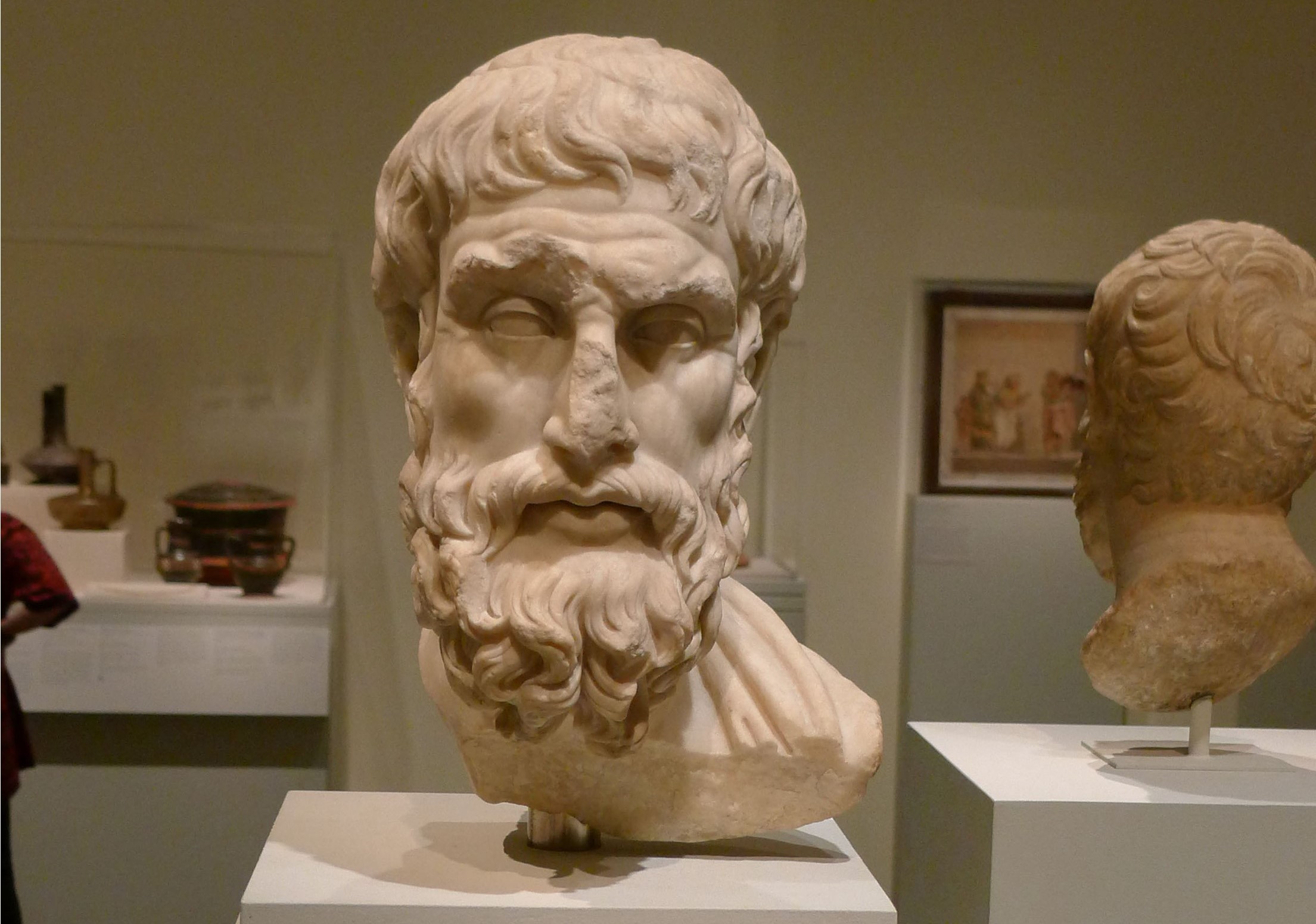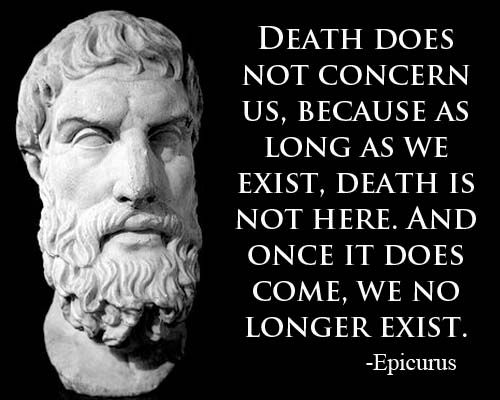by Enda Harte
Epicurus was said to have been born into a noble family in Samos, Greece, around 341 BC. He was considered Athenian, as Athens had pockets of land in that area. At the age of approximately 18, he moved to Athens, where he immersed himself in the world of philosophy, learning under various schools and teachers. Throughout his adult life he moved to various places including Lesbos and Lampsacus. In his time in both cities, he taught and acquired followers.
He moved back to Athens in approximately 306 BC and set up his own school, which drew from his vast array of teachers. These included Democritean philosophers, physicists, and astronomers, and he was also largely influenced by the works of Aristotle. This school came to be known as The Garden, due to the meetings taking place in his private residence in Athens, and from this, we have one of the three dominant Hellenistic philosophies: Epicureanism.
Epicurus remained in Athens until his death, c. 270 BC. He died at the age of 70 or 71. In accordance with his philosophy, Epicurus did not fear death. A famous quotation of Epicurus goes, ‘Death is nothing to us, so long as we exist, death is not with us; but when death comes, then we do not exist.’
Getting to the point
The main belief of Epicureanism is that pleasure is the end goal (or telos). By pleasure, it is generally understood to refer to lack of pain: the freedom of the body from pain, as well as freedom of the soul from disturbance.
To the Epicureans and many others, peace of mind and good living is achieved with the help of philosophy.
An example of these are:
- Intellectual stimulation
- Serenity of your spirit
- A healthy body
Within the Epicurean school, most sources claim it taught moderate abstinence and general self-control, plus independence of thought. Pleasures which endure throughout our lives are sought out, and not fleeting moments. Epicurus is said to have praised a life that would escape other people’s line of sight.
It is important to note that Epicurean hedonism is often associated with the modern terminology for excess and pure pleasures. However, it is generally agreed that Epicureanism promotes the need for a calm and tranquil life, with pain being evil, and pleasure good. It is noted that Epicureanism promotes avoiding pleasures which are extreme, as they often have painful consequences.
Other beliefs
It is folly for a man to pray to the gods for that which he has the power to obtain by himself. – Epicurus
To Epicureans, there was a need to distinguish pleasure, into two categories: higher pleasures and lower pleasures. The higher pleasures are related to the mind and reflection, focusing on intellectual prowess, and aesthetics. The lower pleasures, would be those that relate to the body, including food, drink, and sexual intercourse.
Epicurus himself sought virtue in some form, which is a common theme in every Hellenistic school of thought. As mentioned above, this was centered around a calm and tranquil soul. It focuses on the individual’s pleasure and well-being, as opposed to being a member of the great cosmopolis and assisting others, which you might find in the likes of Stoicism.
Epicurus also put great emphasis on friendship, as your own pleasure is partially dependent on others’ influence. The Epicurean school had a cavalier attitude to death and dying. For them it was the limit of your life experience, and wasn’t subject to the quality of your life while on Earth. They suggested you should not fear death, because of its emptiness.
Lastly, Reason, or Practical Reason (phronesis) was an important part of the Epicurean way of life. For Epicurus and others, Reason is the need to balance out one thing with another to therefore seek future happiness. To the Epicureans, all things were chained together from atoms and linked in constant motion. With this simple fact in mind, you can overcome superstitions and general fear.
Opposing views
Historically, Epicureanism was not a philosophy of sages and leaders like Stoicism. The founder often mentions avoiding pain at all costs. While most people will argue about what the ultimate pleasures are in life, Epicurus suggests we avoid pushing to achieve too much. For Epicurus, a humble life was the greater goal. As he said himself…
“Do not spoil what you have by desiring what you have not; but remember that what you now have was once among the things you only hoped for.“











No comments yet. You should be kind and add one!
Our apologies, you must be logged in to post a comment.